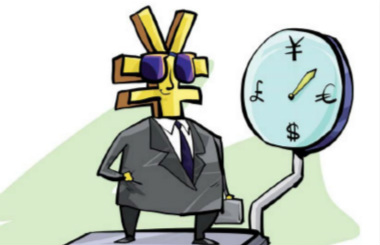Experts: Chinese economy on right track
Updated: 2016-02-02 16:35
(chinadaily.com.cn)
|
|||||||||||
Editor's note: There has been a sharp rise in stories in Western media in recent months that paint a dire picture of Chinese economy. But do their claims stand up? To find out whether the future is as bleak as is painted by some in the West, we invited four experts to share their views on economic challenges and opportunities.
Here is their take.

The current slowdown in China's economic growth is partly explained by what I called in my last article "a much overdue and entirely necessary long-term structural adjustment that inevitably shifts growth to a lower plane, almost certainly well below the current 6.9 percent per annum GDP expansion".
No economist I know ever expected China's economy to grow by 10 percent per annum for so many years. Japan had grown that fast some decades earlier, but then subsided into a miserable quarter century of stagnation that its government is still struggling to escape. The NIEs (Newly Emerging Economies) of East Asia: Hong Kong, Singapore and Taiwan also slowed after rapid growth spurts which lifted their populations from third-world to first-world average living standards.
Read more about "China's economy: the inevitable adjustment"

There is a quote from the great philosopher Ludwig Wittgenstein which gives some insight into the strangely shocked response by many outside to the Chinese government's announcement that GDP growth in 2016 will be around 6.8 percent. "I went into the room expecting to be surprised," he said, "and wasn't – which surprised me."
The surprising thing now is not that Chinese growth is slowing down, but that there are so many who are surprised by this. Chinese leaders, and economists, have been saying for years that Chinese high levels of GDP were unsustainable. In the 2000s, the then Premier Wen Jiabao stated that producing double digit levels of growth could not go on forever. In many ways it is a miracle China has managed it as long as it has. Since 2012, this message has increased. The current Premier Li Keqiang spoke of 'fast, sustainable growth' when he came into office, and a figure of around 7 percent fits that bill. Alongside this there has been frequent talk of a new normal and a different growth model – lower in raw yield, but higher in quality.
Read more about "Chinese economy is on track for developed status"

It's US election season again (when isn't it?), so it must be time to beat up China on everything to do with economic and trade matters.
Now I would be the first to agree that the Beijing government has made a couple of mistakes recently, and I'll come back to these in a moment together with my suggestions on how to fix them. But some of the claims being made especially by Republican presidential candidates during their debates are simply so far away from the truth that they must be corrected.
For example more than one candidate has stated as fact that China has kept its currency artificially low so as to gain an advantage in international trade. Front runner Donald Trump has even pledged to impose tariffs on Chinese products to "level the playing field", notwithstanding that this would be contrary to all the rules of the World Trade Organisation. It is correct that the renminbi has slipped by about 6 percent against the US dollar in the past few months, but that follows a rise of more than 20 percent in recent years so the net position is still a gain of around 15 percent. In fact a true reading of the position is that the renminbi has been pulled up by the strong dollar and most economists would say it is probably now over-valued compared with most other currencies.
Read more about "Not China-bashing again!"

When asked to comment on reports that he was dying in poverty in 1897, Mark Twain replied in a letter that ended: "The report of my death was an exaggeration." The same may be said about today's Chinese economy, which, while slowing, is definitely alive and kicking.
During the half century that I've been studying modern China and its economy, perceptions of that economy in the rest of the world have been reversed, and then reversed again.
In the 1960s and 1970s, the Chinese economy was ignored as irrelevant because it was small and closed. China's GDP was far less than that of a small country such as Belgium. And trade accounted for only a few percentage points of that GDP. When I tried to sell myself to companies on the basis of China's enormous economic potential, I was treated (to put it politely) with extreme skepticism.
Related Stories
Chinese economy still an 'engine' rather than a 'laggard' 2016-01-30 11:14
Chinese economy deserves unswerving confidence 2016-01-30 10:53
Premier Li tells IMF's Lagarde renminbi will stay stable 2016-01-29 03:02
China's economy on track in terms of GDP growth: BRICs creator 2016-01-27 15:07
Government workload heavy in 2016, Li says 2016-01-23 08:06
Today's Top News
China manufacturing activity contracts for 6th month
Sanders plays down Clinton's hold over voters in Iowa
New China-led bank 'will be inclusive'
Horizons expand for Chinese companies in France
Negotiating political transition in Syria 'possible'
Man arrested with handguns at Disneyland Paris
Record number of Chinese tourists visited UK in 2015
Foreigners fill in Spring Festival courier gap
Hot Topics
Lunar probe , China growth forecasts, Emission rules get tougher, China seen through 'colored lens', International board,
Editor's Picks

|

|

|

|

|

|






